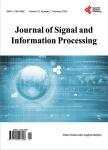Robust Low-Power Algorithm for Random Sensing Matrix for Wireless ECG Systems Based on Low Sampling-Rate Approach
Robust Low-Power Algorithm for Random Sensing Matrix for Wireless ECG Systems Based on Low Sampling-Rate Approach作者机构:Electrical and Computer Engineering Department Ryerson University Toronto Canada Electrical and Computer Engineering Department Ryerson University Toronto Canada.
出 版 物:《Journal of Signal and Information Processing》 (信号与信息处理(英文))
年 卷 期:2013年第4卷第3期
页 面:125-131页
学科分类:1002[医学-临床医学] 100214[医学-肿瘤学] 10[医学]
主 题:Sensing Matrix Power Consumption Normal and Abnormal ECG Signal Compressed Sensing Block Sparse Bayesian learning
摘 要:The main drawback of current ECG systems is the location-specific nature of the systems due to the use of fixed/wired applications. That is why there is a critical need to improve the current ECG systems to achieve extended patient’s mobility and to cover security handling. With this in mind, Compressed Sensing (CS) procedure and the collaboration of Sensing Matrix Selection (SMS) approach are used to provide a robust ultra-low-power approach for normal and abnormal ECG signals. Our simulation results based on two proposed algorithms illustrate 25% decrease in sampling-rate and a good level of quality for the degree of incoherence between the random measurement and sparsity matrices. The simulation results also confirm that the Binary Toeplitz Matrix (BTM) provides the best compression performance with the highest energy efficiency for random sensing matrix.



